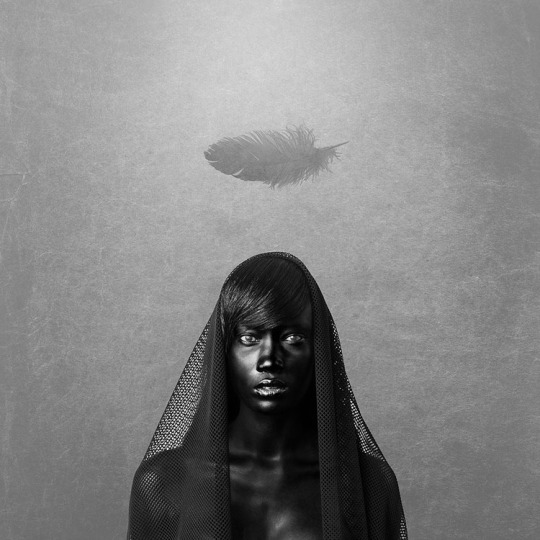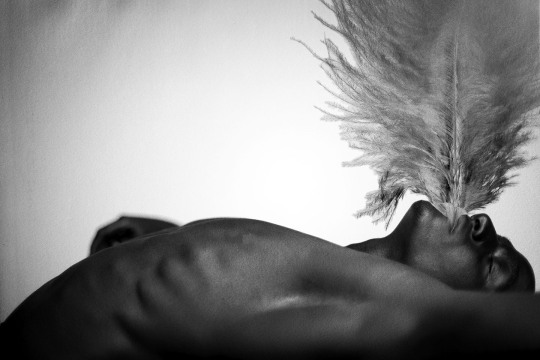#there are so many nuanced ways to explore gender and sexuality in high fantasy historical based settings
Explore tagged Tumblr posts
Text
i finally lead that cringy ass taash gender notes page on the wiki and this is so fucking embarrassing. these writers needed to get off tumblr YEARS ago. holy shit. they invented microsexualities in 9:50 dragon i guess
#takes a character who is a trans woman in a deeply patriarchal and conservative society#sets her up to examine how she uses her position of power as a politician advocating abolition in a society that practices slavery#instead makes her a background piece whos only lines are YOU! ARE! VALID!#im exploding these writers with my mind#there are so many nuanced ways to explore gender and sexuality in high fantasy historical based settings#too bad these writers dont understand nuance so they include shit like demigender into the lexicon instead of navigating..whatever man.#but its ok. You Are Valid
4 notes
·
View notes
Text
I had a long discussion with friends earlier about the gender bias in how YA books are marketed and it somehow evolved into me saying "We need more fiction that questions the concept of attraction itself"
We got into how easily romance can be latched onto other genres (romantic comedy, romantic drama, fantasy romance, historical romance, etc.) and I started asking myself what an arocom (aromantic comedy) would look like. I decided, based on an old Tumblr post I can't find that joked about some comedy movie being aro representation b/c it had no romance, that it can't just be "a comedy with no romance at all", because then that's just a regular old comedy. By that logic, SpongeBob would be an arocom, which doesn't make sense b/c it largely focuses on non-romantic plots (SpongeBob working at his job, failing to get his license, the general shenanigans he and his friends get into) and only addresses romance sparingly, depending on the plot of an episode.
It sucks to admit but at least from my perspective, in order for a piece of media to qualify as "aromantic/asexual media" in the heavily sex- and romance-catered media landscape, it kinda needs to address sex and romance in the first place. As wonderful as it would be to escape for a few hours to a book or show or game where romance isn't addressed at all and think of that as aro rep, you can't really call attention to a character's lack of romantic or sexual attraction without acknowledging, even indirectly, that those exact things exist within the text.
I'm not saying sex and romance are inherently bad either. There are aces who engage in sexual activities, aros who date, folks on both spectrums who engage in kink because kink is not inherently sexual and just approach relationships in so many incredibly nuanced ways. It's not just about aspecs also having parents and siblings and pets either, we have friends and coworkers and neighbors. We have interests and skills and hobbies. But it's not just the cishets who place sex and romance on such a high pedestal as "fundamental aspects of what makes people human", I see it within the LGBT community too. There are more than a few openly queer folks out there who don't know or have forgotten that because asexuality and aromanticism are a lack or absence of attraction (and thus a lack/absence of conformist heterosexuality), that we are, to varying degrees, queer as well. And thus media with aroace subtext (or just text for that matter) tends to get excluded from discussions of queer subtext.
I feel like I got a little off-topic and rambly but Idk I just think we need more aspec fiction where people are free to explore all spectrums of attraction as much as they want, ask questions about what defines a relationship, and just generally bear in mind relationship anarchy when they create. I'd like to see it in mainstream media but I'd also like to see it in fanfic too
(Btw everything I just said also extends to people who are poly)
#relationship anarchy#aromantic#asexual#aromantic asexual#aroace#aspec#arospec#demisexual#demiromantic#gray asexual#gray aromantic#fictosexual#fictoromantic#queerplatonic#quasiplatonic#polyamory#polyam#polycule
252 notes
·
View notes
Text
Jim Chuchu: “A blackness not afraid to dream”

Jim Chuchu is a Kenyan photographer, musician, and film director born in Nairobi in 1982. Originally a graphic designer for an advertising company, Chuchu quit his job to pursue his artistic dreams in 2006. Chuchu co-founded the musical group ‘Just a Band’ in 2008, and moved onto photography in collections such as “Concrete Crystals” in 2010 and “Pagans” in 2013/2014. Chuchu co-founded ‘The Nest Collective’ for Kenyan artists in 2012 to coordinate and advertise Kenyan art, and with ‘Nest’, helped create the HEVA fund for East African creative entrepreneurs. Chuchu also expanded his art into moviemaking, with starting with short films “Homecoming” and “Urban Hunter” in 2013. One of his most famous and controversial works was “Stories of our Lives,” which he co-directed, wrote, and filmed- “Stories” won awards across the globe, but was banned by the Kenyan Film Classification Board and cannot be sold and distributed in Kenya. Chuchu remains working in Nairobi, filming the webseries ‘Tuko Macho’ and releasing his ‘Secession’ photography collection in 2016.
As a prolific and award-winning creator of film, music, and visual art, as well as a co-founder of many artistic groups, it is easy to get lost in simply listing Chuchu’s accomplishments. Chuchu’s work not just aesthetically appealing, but deeply political. His 2014 film “Stories of our Lives,” is a powerful response to homophobic views and legislation in Kenya and an expression of LGBT experiences that is uniquely Kenyan. ‘Stories’ is a collection of five vignettes:
-”Ask Me Nicely”: the story of two students (Kate and Faith), falling in love and struggling with a relationship that society actively tries to destroy.
-”Run”: the story of Patrick, a businessman who discovers a gay bar with a homophobic friend (Kama), and is torn between a desire to enter and the social pressures to reject it.
-”Athman”: the story of Athman and Ray, two farm workers who discover that their friendship has romantic overtones after they become jealous when a flirtatious stranger, Fiona, arrives.
-”Duet”: an exploration of race and sexuality, as Jeff (a Kenyan visiting the UK) discusses race with his Roman, his British escort.
-”Each Night I Dream”: the story of a couple (Liz and Achi) who plan their escape as homophibic mobs terrorize the neighborhood
The use of five completely different situations and relationships enables Chuchu to explore different ideas and tones freely throughout “Stories. LGBT relationships can be tragic and turbulent (’Ask Me Nicely’ exploring the damage social pressures can have on young LGBT romance and the the confusion of a relationship that society condemns; ‘Each Night’ exploring the stress society places on established relationships, and the terror that some couples must survive), but they are not purely tragic. ‘Ask Me Nicely’ ends with the couple reuniting (albeit awkwardly), and Jeff doesn’t face some tragic end or attack as a consequence of his feelings in ‘Duet’- in fact, Jeff in many ways is in control of the situation, with Roman as his escort. Patrick, Kate, Faith, Ray, Athman, Jeff, Liz, and Achi all face challenges, but their stories are wildly different- Chuchu avoids falling into a single story. Chuchu is critical of both the West (see ‘Duet’) and Kenyan society at large (see ‘Ask Me Nicely’, ‘Run’, and ‘Each Night I Dream’), seeking to give Kenyan LGBT their own voice. That was enough to warrant a ban from the Kenyan Film Classification Board, and to create public outrage in Kenya. Chuchu, along with his fellow writer Nyoki Ngumi and others who worked to create “Stories” did not initially release their names attached to the film. Chuchu described it as “a very tough decision” to attach his name to the film in an interview with The National. “The film has an earthquake quality.” Attitudes towards LGBT individuals in Kenya have been historically hostile since the British colonial period- Kenya has kept laws criminalizing homosexuality, which is punishable with up to fourteen years in prison. Pew polls record 90% of polled individuals in Kenya answering ‘No’ towards ‘should gay people be accepted in society?’. While Western organizations attempt to pressure the Kenyan government into decriminalizing homosexuality (with little to no effect), “Stories of our Lives” refuses to be anything but Kenyan (though Chuchu has shown inclinations towards pan-Africanism and East African solidarity, so one could argue it is East African as well as simply Kenyan).
Chuchu’s photography is equally political: his 2013-2014 photo-project “Pagans”, which sought to capture the visual essence of “future-past anonymous African deities” (African Futures, 38) was heavily inspired by Afro-futurism and the idea of a pan-African cultural space to explore fantasy and the mixture of spirituality and technology. The photography in “Pagans” also transitions from color to black-and-white after the 2014 ban on “Stories”.
2013:

2014:

‘Pagans’ also seeks to carve out a space for pan-African fantasy: the deities depicted in ‘pagans’ are anonymous, detached from region or tribe. Chuchu describes “a blackness not afraid to dream, not afraid to exist in another world.” “If black people aren’t allowed to dream, how can we create something?” (African Futures, 38).
Chuchu’s 2016 “Secession: No Person Shall Be Held Against Their Will In A Body They Do Not Want,” gives voice to the ‘T’ in Kenyan LGBT: while “Stories” was primarily focused on same-sex relationships in modern Kenya, ‘Secession’ pivots towards gender and gender dysphoria in Kenya. In particular, ‘Secessions’ seeks to capture the rage, pain, and desperation to escape Kenya’s rigid stances against expression by Transgender individuals.

While ‘Secessions’ gives voice to a feelings of violent separation from the rest of Kenyan society (the secession in question), it also paints a picture of imagination and peace beyond the body- a sleeping figure with a feather pointing above and beyond:

Chuchu’s exploration of both struggle and peace demonstrates nuance and versatility. It gives perspectives that go beyond a single message or perspective- part of what makes Chuchu perfect for this Kenyan cultural profile. Chuchu takes on several issues discussed in our course: identity in independent Africa, the need for African voices in a system primarily dominated by outsiders that strip Africans of their agency, the need to escape what Adiche called “the single story”, and the tensions between the West and African LGBT voices in the struggle against homophobic legal codes in Africa. Chuchu embraces the Afro-futurist pan-African vision of black unity: he may work out of his native Nairobi, but he never labels his art as purely Kenyan. His organizations- Nest Collective, HEVA- act as East-African artistic collectives rather than national ones. Chuchu sees identity in a ‘future-past anonymous’ pan-African vision, one of anonymous gods defined less by a regional past and more by a shared future. He rejects communal values -such as those towards gay relationships and transgender individuals- in favor of individual liberation. He ‘secedes’ from a Kenya he feels has rejected him, and embraces Nest and HEVA as a greater East-African artistic identity, Race plays a part in this identity (’Pagans’ does imagine black dreams of the future), but ethnicity and nationality are silently ignored.
Chuchu’s vision of Kenyan LGBT is not one of helpless Africans in need of a Western savior, but rather of individuals planning their own escape and taking matters into their own hands despite a society that is hostile to them. The West is not an enemy, necessarily, but it is tied into a contentious and complicated past bound by race relations (and power is in the hands of Africans when Westerners do enter- ‘Duet’ paints the Kenyan as distinctly in control). Homophobic attitudes in Kenya are not coddled either- they are depicted as destructive, even mindless (the mob in “Stories”) forces that are at odds with true individual liberation.
Beyond connections to the class, Chuchu seemed ideal because of the variety in his art- he plays with film, photography, and music, and he often collaborates with others in Nest and Just a Band. He also gives a unique perspective as an artist who was not always set on high art- Chuchu’s background as a closeted gay man in Nairobi who worked for an ordinary Nairobi ad agency until 2006 gives him insight into the Nairobi LGBT experience. While art school or foreign schools do not ‘taint’ artists or make them less ‘authentic’, its a different perspective. Also not to claim that Chuchu is somehow provincial- he has toured in LA, and is a very well-informed and politically active individual (just check his twitter account). But his thoroughly Nairobi-grown perspective and willingness to collaborate with others across East Africa really creates a unique perspective that adds significantly to discourse on Kenyan culture and art.
For those interested in “Stories of Our Lives,” or The National Interview:
youtube
youtube
Sources:
http://www.jimchuchu.com/portfolio
http://africandigitalart.com/2009/06/interview-with-jim-chuchu/
http://www.huffingtonpost.com/diriye-osman/stories-of-our-lives_b_5859888.html
http://www.thisisthenest.com/sool-film
http://www.indiewire.com/2014/10/kenyan-film-board-bans-tiff-film-stories-of-our-lives-215860/
http://www.thisisthenest.com/about/
https://www.amnesty.org.uk/lgbti-lgbt-gay-human-rights-law-africa-uganda-kenya-nigeria-cameroon
http://www.pewglobal.org/2013/06/04/the-global-divide-on-homosexuality/
(Edited by) Heidenreich, Lien; O’Toole, Sean. African Futures: Thinking about the Future Through Word and Image (Kerber: 2016) 38-42
1 note
·
View note